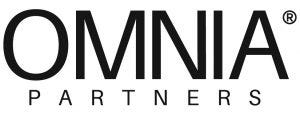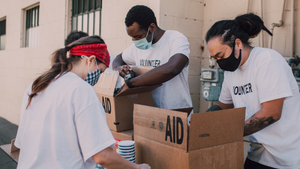Your Cooperative Checklist: Key Factors for Evaluating Cooperative Contracts
October 1, 2020

Sponsored by OMNIA Partners
Whether you’re a dedicated public procurement officer or you provide procurement services in addition to your other responsibilities, your goal is the same: You need quality goods and services that support the goals of your city or county while ensuring the best use of public funds.
Cooperative contracts are an excellent and increasingly popular tool that can streamline the procurement process and ensure you get the most value for your purchases. Unfortunately, not all purchasing cooperatives are created equal. There are four factors to consider when evaluating cooperative contracts: Process, Competitiveness, Transparency and Experience. Learn the standard for each so you can proceed with confidence.
One: Process
Process is paramount and should serve as the foundation of every contract evaluation. First, government contracts should always be solicited by a reputable lead public agency that adheres to its publicly stated solicitation process. When reviewing the solicitation, make note of whether everything in it is understandable and the scope of the product or service offering is clear and specific.
Once the contract is awarded, you’ll want to be sure you can ask questions and get answers about the contract terms. Your purchasing cooperative should be willing and able to respond quickly to your inquiries.
Two: Competitiveness
Competitiveness is key to creating value for your city or county. The more suppliers that participate in a solicitation, the more potential savings can be created. A good purchasing cooperative will make sure the lead agency is really maximizing competition. The lead agency will determine how many highly competitive responses are received and ensure the award is limited to best value suppliers.
Three: Transparency
When it comes to procurement, you want openness and transparency. The purchasing cooperative should In addition to the contract award, the Executive Summary should be posted, along with an overview of the solicitation process. Access to these documents should be open to all, not hidden behind passwords, memberships or FOIA requests.
Four: Experience
Experience really matters. Not all purchasing cooperatives are created equal. You’ll need to make sure the cooperative is independent of the awarding entity or lead agency. You should be confident that your cooperative works with lead agencies that have professional and respected procurement departments. And, last but certainly not least, make sure the cooperative has experienced public procurement professionals to provide oversight and support.
At OMNIA Partners, most of our regional managers are former procurement professionals who have walked in your shoes. They are always one call away to provide oversight, answer questions, and support you in the procurement process. If you’re interested in learning more about purchasing best practices, OMNIA Partners is here to help. As the largest and most experienced cooperative purchasing organization in the market, OMNIA Partners has a member development team of experts ready to help you navigate contracts and achieve your organization’s goals. For more information, please visit: OMNIAPartners.com/publicsector
Brought to you by:








